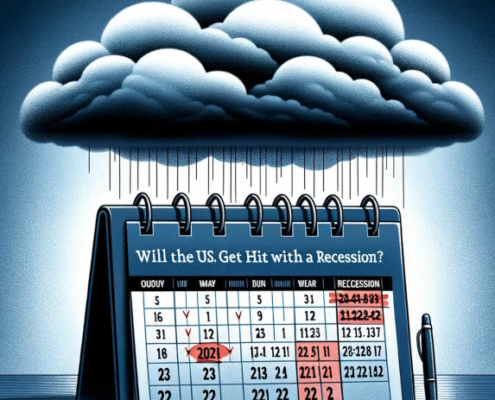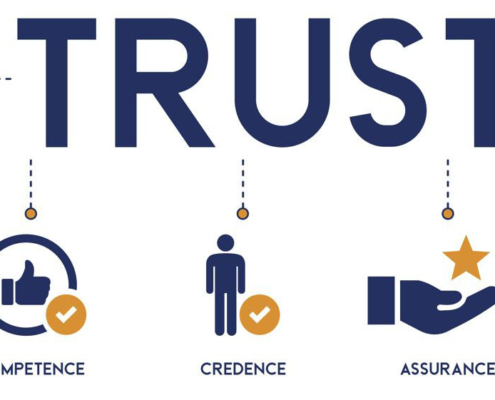Unjust Enrichment Law Definition Elements & Defenses – California
Author: Brad Nakase, Attorney
Email | Call (888) 600-8654
Is unjust enrichment a claim in California?
Unjust Enrichment Definition
“In general, a person who has been unjustly enriched at the expense of another is required to make restitution to the other.’ (Rest., Restitution, § 1.) ‘Ordinarily the benefit to the one and the loss to the other are co-extensive, and the result . . . is to compel the one to surrender the benefit which he has received and thereby to make restitution to the other for the loss which he has suffered. In other situations, a benefit has been received by the defendant but the plaintiff has not suffered a corresponding loss or, in some cases, any loss, but nevertheless the enrichment of the defendant would be unjust. In such cases, the defendant may be under a duty to give to the plaintiff the amount by which he has been enriched. ” Unilogic, Inc. v. Burroughs Corp. (1992) 10 Cal.App.4th 612, 627–628.
“Another crucial point is that unjust enrichment, as the phrase is used here, is, in effect, synonymous with restitution. ‘ “ ‘The phrase “unjust enrichment” is used in law to characterize the result or effect of a failure to make restitution of or for property or benefits received under such circumstances as to give rise to a legal or equitable obligation to account therefor.” Ajaxo Inc. v. E*Trade Financial Corp. (2010) 187 Cal.App.4th 1295, 1305.
The phrase “unjust enrichment” is used in law to characterize the result or effect of a failure to make restitution of or for property or benefits received under such circumstances as to give rise to a legal or equitable obligation to account therefor. As expressed by some authorities, the obligation to do justice rests upon all persons, natural and artificial; if one obtains the money or property of others without authority, the law, independently of express contract, will compel restitution or compensation. (C.H. Reynolds Elec. v. Spears (2004) Cal.App.Unpub. LEXIS 1415.)
What are the elements of unjust enrichment in California?
The elements of a claim of unjust enrichment include:
- receipt of a benefit
- unjust retention of the benefit at the expense of another.
(Peterson v. Cellco Partnership (2008) 164 Cal.App.4th 1583.)
To determine if Plaintiff wins a lawsuit, the jury is given this instruction (CACI 4410):
- Defendant was unjustly enriched if his misappropriation of Plaintiff’s e.g. trade secrets caused Defendant to receive a benefit that he otherwise would not have achieved.
- To decide the amount of any unjust enrichment, first determine the value of Defendant’s benefit that would not have been achieved except for his misappropriation. Then subtract from that amount Defendant’s reasonable expenses, including the value of the e.g. labor, material, rent, capital, etc.
- In calculating the amount of any unjust enrichment, do not take into account any amount that you included in determining any amount of damages Plaintiff’s actual loss.
A person who has been unjustly enriched at the expense of another is required to make restitution to the other. (CTC Real Estate Services v. Lepe (2006) 140 Cal.App.4th 856.)
What is an example of unjust enrichment?
Simplified Example: It is Christmas, and Plaintiff Paul Revere is dropping off a very expensive basket of Fruit Cake samplers at his friend Mary-Jane Blunt’s home. Paul has never been to Mary-Jane’s house, so he mistakenly left the fruit-cake at Mary-Jane’s next-door neighbor, Defendant Donald Dan, front door. Donald Dan arrived home and found the fruit cake and kept it.
Plaintiff Paul Revere may bring a lawsuit against Donald Dan for unjust enrichment.
________________________________________
“The essence of the constructive trust theory is to prevent unjust enrichment and to prevent a person from taking advantage of his own wrongdoing. In such a trust based on wrongdoing, an oral promise is sufficient and the existence or absence of a confidential relationship between the parties, in the strict sense, is not controlling.” Martin v. Kehl, 145 Cal. App. 3d 228.
“The mere fact that a person benefits another is not of itself sufficient to require the other to make restitution therefor. There is no equitable reason for invoking restitution when the plaintiff gets the exchange that he or she expected.” Peterson v. Cellco Partnership, 164 Cal. App. 4th 1583.
“The phrase “unjust enrichment” is used to characterize the result or effect of a failure to make restitution of or for property or benefits received under such circumstances as to give rise to a legal or equitable obligation to account therefor. One person should not be permitted unjustly to enrich himself at the expense of another, but should be required to make restitution of or for property or benefits received, retained, or appropriated, where if is just and equitable that such restitution be made, and where such action involves no violation or frustration of law or opposition to public policy, either directly or indirectly.” Dinosaur Development, Inc. v. White, 216 Cal. App. 3d 1310.
“A person who has been unjustly enriched at the expense of another is required to make restitution to the other. A person is enriched if he receives a benefit at another’s expense. The term “benefit” denotes any form of advantage. Thus, a benefit is conferred not only when one adds to the property of another, but also when one saves the other from expense or loss. Even when a person has received a benefit from another, he is required to make restitution only if the circumstances of its receipt or retention are such that, as between the two persons, it is unjust for him to retain it. For a benefit to be conferred, it is not essential that money be paid directly to the recipient by the party seeking restitution.” County of Solano v. Vallejo Redevelopment Agency, 75 Cal. App. 4th 1262.
“California law on unjust enrichment is not narrowly and rigidly limited to quasi-contract principles. The doctrine also recognizes an obligation imposed by law regardless of the intent of the parties. In these instances there need be no relationship that gives substance to an implied intent basic to the contract concept, rather the obligation is imposed because good conscience dictates that under the circumstances the person benefited should make reimbursement.” Professional Tax Appeal v. Kennedy-Wilson Holdings, Inc., 29 Cal. App. 5th 230.
As expressed by some authorities, the obligation to do justice rests upon all persons, natural and artificial; if one obtains the money or property of others without authority, the law, independently of express contract, will compel restitution or compensation.” Lucky Auto Supply v. Turner, 244 Cal. App. 2d 872.
Elements 1: Receipt of a Benefit
“The doctrine of unjust enrichment is regarded as usually underlying recovery in quasi contractual situations.” Desny v. Wilder, 46 Cal. 2d 715.
Quasi contractual recovery depends upon the defendant’s receiving some benefit. (Day v. Alta Bates Medical Ctr. (2002) 98 Cal.App.4th 243.)
“A person is enriched if the person receives a benefit at another’s expense. However, the fact that one person benefits another is not, by itself, sufficient to require restitution. The person receiving the benefit is required to make restitution only if the circumstances are such that, as between the two individuals, it is unjust for the person to retain it.” McBride v. Boughton, 123 Cal. App. 4th 379.
“A person is enriched if he or she receives a benefit at another’s expense. The term benefit denotes any form of advantage. Thus, a benefit is conferred not only when one adds to the property of another, but also when one saves the other from expense or loss. Even when a person has received a benefit from another, he or she is required to make restitution only if the circumstances of its receipt or retention are such that, as between the two persons, it is unjust for him or her to retain it. For a benefit to be conferred, it is not essential that money be paid directly to the recipient by the party seeking restitution.” County of Solano v. Vallejo Redevelopment Agency, 75 Cal. App. 4th 1262.
Benefit Means Any Type of Advantage
A person is enriched if the person receives a benefit at another’s expense. Benefit means any type of advantage. (Meister v. Mensinger (2014) 230 Cal.App.4th 381.)
Sparing Expenses or Loss Is a Benefit
For purposes of unjust enrichment, “benefit” is conferred not only when one adds to property of another, but also when one saves the other from expense or loss. (Faucetta v. Red Planet Ranch (2003) Cal.App.Unpub. LEXIS 9517.)
Plaintiff Must Confer Benefit Upon Defendant
Plaintiff has no right to sue for restitution where plaintiff did not confer a benefit upon the defendant. (Hirsch v. Bank of America (2003) 107 Cal.App.4th 708.)
Element 2: Unjust Retention of Benefit
Gravamen of quasi-contractual action grounded on unjust enrichment is equitable principle that one should not be allowed to enrich himself at expense of another. (Howard Mills v. Bellwood Laundry & Linen Supply (2007) Cal.App.Unpub. LEXIS 9192.)
Economic Detriment to Plaintiff Is Essential
The element of economic detriment to plaintiff, whether shown by unjust enrichment to defendant or by proof of other economic damage to plaintiff, is essential in action to recover money damages for misappropriation of idea. (Von Brimer v. Whirlpool Corp, (N.D. Cal., 1973) 367 F. Supp. 740.)
Receiving a Benefit Does Not Automatically Require Restitution
The fact that one person benefits another is not, by itself, sufficient to require restitution. The person receiving the benefit is required to make restitution only if the circumstances are such that, as between the two individuals, it is unjust for the person to retain it. (Meister v. Mensinger (2014) 230 Cal.App.4th 381.)
Public Policy May Preclude Recovery
Plaintiff, a former boyfriend who falsely believed that he was the father of a child, was barred from recovering against the defendants, the mother and her husband. The court concluded that although he had expended funds to support the child, public policy precluded the court from requiring the mother to make restitution to the boyfriend based on his claim of unjust enrichment. (McBride v. Boughton (2004) 123 Cal.App.4th 379.)
Limitation on Recovery
In California, it is the general rule that “one who confers benefits on another officiously, I.e., by unjustified interference in the other’s affairs, is not entitled to restitution. It must ordinarily appear that the benefits were conferred by mistake, fraud, coercion; otherwise, though there is enrichment, it is not unjust. (Hill v. Kwiat (2005) Cal.App.Unpub. LEXIS 3622.)
Illegal Contracts Enforced to Avoid Unjust Enrichment
An illegal contract may be enforced to avoid unjust enrichment or unconscionable injury. (Dunkin v. Boskey (2000) 82 Cal.App.4th 171.)
What are the remedies for unjust enrichment?
“A defendant’s unjust enrichment is typically measured by the defendant’s profits flowing from the misappropriation of a trade secret. A defendant’s profits often represent profits the plaintiff would otherwise have earned. Where the plaintiff’s loss does not correlate directly with the misappropriator’s benefit, the problem becomes more complex. There is no standard formula to measure it.” Ajaxo Inc. v. E*Trade Financial Corp., 187 Cal. App. 4th 1295.
“A defendant’s unjust enrichment might be calculated based upon cost savings or increased productivity resulting from use of the secret. Increased market share is another way to measure the benefit to the defendant. Recovery is not prohibited just because the benefit cannot be precisely measured. But like any other pecuniary remedy, there must be some reasonable basis for the computation.”Ajaxo Inc. v. E*Trade Financial Corp., 187 Cal. App. 4th 1295.
“Unjust enrichment, as the phrase is used here, is, in effect, synonymous with restitution. The phrase “unjust enrichment” is used in law to characterize the result or effect of a failure to make restitution of or for property or benefits received under such circumstances as to give rise to a legal or equitable obligation to account therefor.” Ajaxo Inc. v. E*Trade Financial Corp., 187 Cal. App. 4th 1295.
“Where a defendant has not realized a profit or other calculable benefit as a result of his or her misappropriation of a trade secret, unjust enrichment is not provable within the meaning of Civ. Code, § 3426.3, subd. (b), whether the lack of benefit is determined as a matter of law or as a matter of fact.” Ajaxo Inc. v. E*Trade Financial Corp., 187 Cal. App. 4th 1295.
Constructive Trust As A Remedy For Unjust Enrichment
The constructive trust is an equitable remedy to prevent unjust enrichment and enforce restitution, under which one who wrongfully acquires property of another holds it involuntarily as a constructive trustee, and the trust extends to property acquired in exchange for that wrongfully taken. (La Paglia v. Superior Court (1989) 215 Cal.App.3d 1322.)
“The essence of the constructive trust theory is to prevent unjust enrichment and to prevent a person from taking advantage of his own wrongdoing. In such a trust based on wrongdoing, an oral promise is sufficient and the existence or absence of a confidential relationship between the parties, in the strict sense, is not controlling.” Martin v. Kehl, 145 Cal. App. 3d 228.
The principal constructive trust situations are set forth in Cal. Civ. Code §§ 2223, 2224. Cal. Civ. Code § 2223 provides that one who wrongfully detains a thing is an involuntary trustee thereof, for the benefit of the owner. Cal. Civ. Code § 2224 provides that one who gains a thing by fraud, accident, mistake, undue influence, the violation of a trust, or other wrongful act, is, unless he has some other and better right thereto, an involuntary trustee of the thing gained, for the benefit of the person who would otherwise have had it. The only conditions necessary to create a constructive trust are those in Cal. Civ. Code §§ 2223, 2224. In order to provide the necessary flexibility to apply an equitable doctrine to individual cases, Cal. Civ. Code §§ 2223, 2224 state general principles for a court’s guidance rather than restrictive rules. Thus, it has been pointed out that a constructive trust may be imposed in practically any case where there is a wrongful acquisition or detention of property to which another is entitled. Martin v. Kehl, 145 Cal. App. 3d 228.
Restitution As a Remedy for Unjust Enrichment
A person who has been unjustly enriched at the expense of another is required to make restitution to the other. County of Solano v. Vallejo Redevelopment Agency, 75 Cal. App. 4th 1262.
With respect to damages based on unjust enrichment, typically the defendant’s benefit and the plaintiff’s loss are the same, and restitution requires the defendant to restore plaintiff to his or her original position. (County of San Bernardino v. Walsh (2007) 158 Cal.App.4th 533.)
Transferee with Knowledge
A transferee with knowledge of the circumstances giving rise to an unjust enrichment claim may be obligated to make restitution. For example, a person who has entered into a transaction with another under such circumstances that, because of a mistake, he would be entitled to restitution from the other is entitled to restitution from a third person who had notice of the circumstances before giving value or before receiving title or a legal interest in the subject matter. (Welborne v. Ryman-Carroll Foundation (2018) 22 Cal.App.5th 719.)
Equitable Lien
“Cal. Civ. Code § 3264 provides that the rights of “all persons” to the construction loan fund are governed exclusively by the statutory stop notice procedure and that “no person” may assert a legal or equitable right to the fund other than a right created by a direct written contract. The unequivocal phrases, “all persons” and “no person,” do not admit of any exception.” Nibbi Bros. v. Home Fed. Sav. & Loan Ass’n, 205 Cal. App. 3d 1415.
“A nonstatutory right known as an equitable lien to unexpended funds in the construction loan account was based on the equitable principles of estoppel and unjust enrichment, where the suppliers of labor and materials contributed services in reliance on the construction loan account and thereby enhanced the value of the lender’s security.” Nibbi Bros. v. Home Fed. Sav. & Loan Ass’n, 205 Cal. App. 3d 1415.
An equitable lien is a right to subject property not in the possession of the lienor to the payment of a debt as a charge against that property. (County of Los Angeles v. Construction Laborers Trust Funds for Southern California Admin. Co. (2006) 137 Cal.App.4th 410.)
Example: Contractor’s attorney was entitled to the imposition of an equitable lien, where attorney expended time and effort in representing contractor in several matters. In continuing to work for contractor even while he was not being paid, attorney acted responsibly and in a manner that merited application of an equitable lien. (Ibid.)
Transferee With Knowledge
A transferee with knowledge of the circumstances giving rise to an unjust enrichment claim may be obligated to make restitution. First Nationwide Savings v. Perry, 11 Cal. App. 4th 1657, 1662.
For example, a person who has entered into a transaction with another under such circumstances that, because of a mistake, he would be entitled to restitution from the other is entitled to restitution from a third person.
That third person must have had notice of the circumstances before giving value or before receiving a title or a legal interest in the subject matter.
Unjust Enrichment California Statute of Limitations
The statute of limitation for unjust enrichment in California depends on the facts. The statute of limitations may be 2, 3, or 4 years.
The applicable statute of limitations depends upon the “substance” or “gravamen” of the action rather than upon the form of the pleading. (Diaz v. Wells Fargo Bank, N.A. (2015) Cal.Super.LEXIS 15695.)
Under California law, the legislature has provided a separate (two-year) limitations period covering contracts not founded upon an instrument of writing, such as unjust enrichment. Civ. Code § 339(1).
Statute of Frauds Not Applicable
The statute of frauds does not apply to quasi-contractual recovery. (Ozaki v. Mendez (2009) Cal.App.Unpub. LEXIS 1549.)
Affirmative Defenses
Waiver
“In general, a person who has been unjustly enriched at the expense of another is required to make restitution to the other. A critical limitation on this rule is that one who confers a benefit officiously is not entitled to restitution. It must ordinarily appear that the benefit was conferred by mistake, fraud, coercion, or request; otherwise, though there is enrichment, it is not unjust.” Nibbi Bros. v. Home Fed. Sav. & Loan Ass’n, 205 Cal. App. 3d 1415.
There is a critical limitation on this rule is that one who confers a benefit officiously is not entitled to restitution. “It must ordinarily appear that the benefits were conferred by mistake, fraud, coercion or request; otherwise, though there is enrichment, it is not unjust. (Nibbi Brothers, Inc. v. Brannan Street Investors, (1988) 205 Cal.App.3d 1415.)
Offset
“To authorize a set-off at law, the debts must be between the parties in their own right, and must be of the same kind and quality, and be duly ascertained or liquidated–they must be certain and determinate debts.” Naglee v. Palmer, 7 Cal. 543
Set-off, when Authorized
“To authorize a set-off at law, the debts must be between the parties in their own right, and must be of the same kind and quality, and be duly ascertained or liquidated–they must be certain and determinate debts.” Naglee v. Palmer, 7 Cal. 543
Equity, when Set-off Allowed.
“Where the plaintiff filed his bill as receiver of an insolvent firm, to foreclose a mortgage given to plaintiffs in that capacity to secure a certificate of deposit for one hundred thousand dollars, originally deposited by the receiver, and defendants admitted the debt, but claimed that the amount is to be distributed pro rata among the creditors of the insolvents, whom the plaintiff represents; that the claims of the creditors have been filed and reported upon; that defendants are large creditors of the insolvents, and that they will, upon the distribution of the assets, be entitled to fifty thousand dollars as their dividend; and that defendants have advanced a further sum to the former custodians of the assets of about fifty thousand dollars, which they pray to have ascertained, and the whole amount set-off against the certificate of deposit, and until then, that plaintiff be restrained: Held, that a Court of Equity will not compel them to pay the money into Court, which they would immediately be entitled to receive back; nor will it put them to the cost of so large a judgment, but will order an account and allow the set-off.” Naglee v. Palmer, 7 Cal. 543.
Estoppel
The doctrine of estoppel to plead the statute of frauds may be applied where necessary to prevent either unconscionable injury or unjust enrichment. (Kaiser v. Matson (2011) Cal.App.Unpub. LEXIS 8013.)
Bona Fide Purchaser
A bona fide purchaser is generally not required to make restitution. (Welborne v. Ryman-Carroll Foundation (2018) 22 Cal.App.5th 719.)
“A bona fide purchaser is generally not required to make restitution. But, a transferee with knowledge of the circumstances surrounding the unjust enrichment may be obligated to make restitution. For a defendant to be without notice means to be without notice of the facts giving rise to the restitution claim. A person has notice of a fact if the person either knows the fact or has reason to know it. A person has reason to know a fact if (a) the person has received an effective notification of the fact; (b) knowledge of the fact is imputed to the person by statute or by other law (including principles of agency); or (c) other facts known to the person would make it reasonable to infer the existence of the fact, or prudent to conduct further injury that would reveal it.” Professional Tax Appeal v. Kennedy-Wilson Holdings, Inc., 29 Cal. App. 5th 230.
Good Faith (see bona fide purchaser)
A bona fide purchaser is generally not required to make restitution. (Welborne v. Ryman-Carroll Foundation (2018) 22 Cal.App.5th 719.)
“Restitution is commonly denied against an innocent transferee or beneficiary, if he has changed his position after the transaction and it is impossible or impractical to restore him to his original position. Likewise, a bona fide purchaser is generally not required to make restitution. By contrast, a transferee with knowledge of the circumstances giving rise to an unjust enrichment claim may be obligated to make restitution.” First Nationwide Savings v. Perry, 11 Cal. App. 4th 1657.
Public Policy
Determining whether it is unjust for a person to retain a benefit may involve policy considerations. For example, if a person receives a benefit because of another’s mistake, policy may dictate that the person making the mistake assume[d] the risk of the error. The desirability of allowing a party to retain the benefit of his or her bargain may preclude the injured party from receiving restitution. (McBride v. Boughton (2004) 123 Cal.App.4th 379.)
Assumption of the Risk
A customary way of regarding a particular type of transaction may justify the inference that the payor has assumed the risk of mistake. (McBride v. Boughton (2004) 123 Cal.App.4th 379.)
Unclean Hands
One who comes into equity must come with clean hands — unclean hands precludes assertion of due equity doctrine and rights of subrogation and restitution; unclean hands is an affirmative defense in actions seeking equitable relief. (Mendoza v. Ruesga (2008) 169 Cal.App.4th 270.)
“To apply the unclean hands doctrine, the misconduct must infect the cause of action before the court.” Unilogic, Inc. v. Burroughs Corp., 10 Cal. App. 4th 612.
“The equitable doctrine of unclean hands has no legal equivalent. Thus, it has been allowed as an affirmative defense in legal actions.”
“The misconduct which brings the clean hands doctrine into operation must relate directly to the transaction concerning which the complaint is made, i.e., it must pertain to the very subject matter involved and affect the equitable relations between the litigants. This requirement is reflected in the third prong of the Blain test–the relationship of the misconduct to the claimed injuries.” Id
“The unclean hands doctrine is not confined to equitable actions, but is also available in legal actions.” Id
Mutual Mistake
(see bona fide purchaser)
Voluntary Payment
Voluntary payment, without mistake or duress is not recoverable. (TracFone Wireless, Inc. v. County of Los Angeles (2008) 163 Cal.App.4th 1359.)
Defendant’s Changed Position (Estoppel/Bona Fide Purchaser)
A party who does not know about another’s mistake, and has no reason to suspect it, may not be required to give up the benefit if he also relied on it to his detriment. (Federal Deposit Ins. Corp. v. Dintino (2008) 167 Cal.App.4th 333.)
Restitution is commonly denied against an innocent transferee or beneficiary, if he has changed his position after the transaction and it is impossible or impractical to restore him to his original position (Ibid.)
Blog: Business | Corporate | Employment Law
See all blogs: Business | Corporate | Employment
See all blog: Business | Corporate | Employment

































